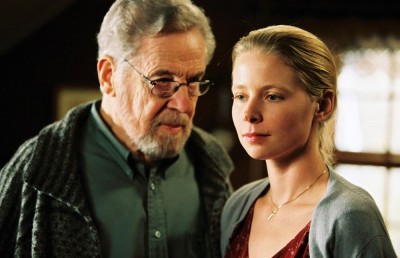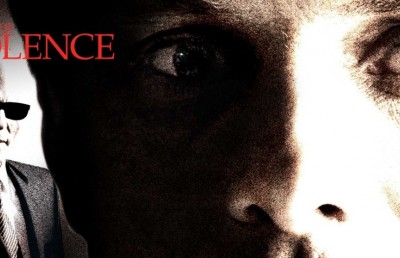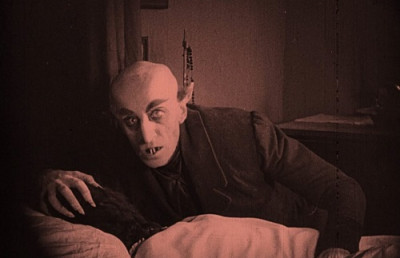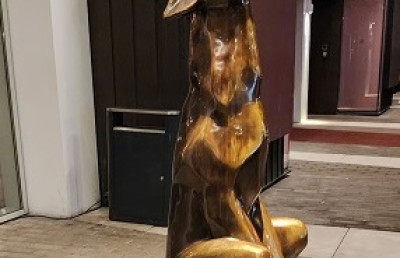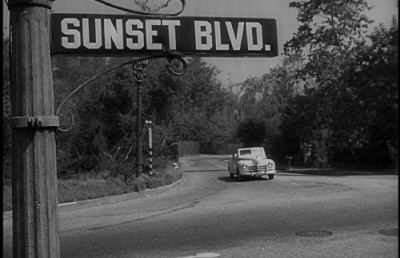Wild Strawberries: A Brief Note about Ingmar Bergman and Pauline Kael
Appreciating Kael
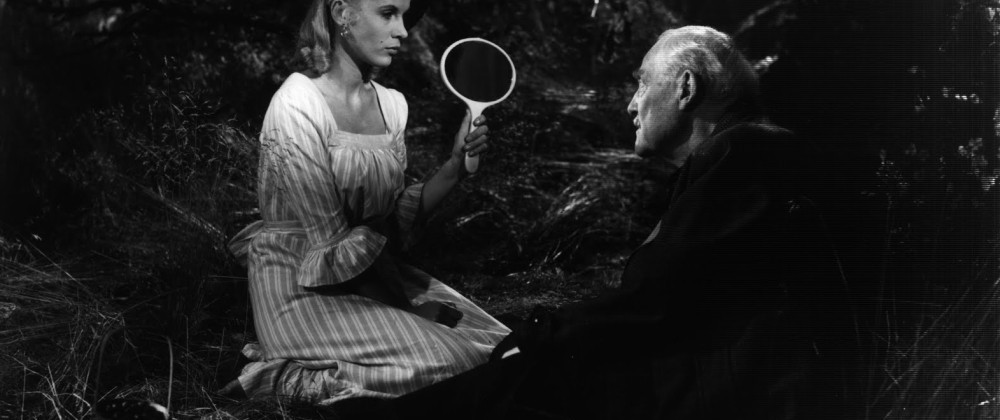
Summers in New York offer a wide range of free activities such as concerts and films, and I attended two free screenings, catching Cary Grant in some of Alfred Hitchcock’s Suspicion (1941) in Bryant Park and all of Ingmar Bergman’s Wild Strawberries (1957) in an East Village restaurant, Telephone Bar and Grill. The great film critic Pauline Kael celebrated Cary Grant’s modern urbanity, his companionable confidence and bravado, in the essay “The Man From Dream City,” and the proof of her assertions is that even when Grant plays a man whose wife has reason to doubt him, as in Suspicion, one can see why his appeal is strong enough that his wife finds it hard to walk away from him. (In the book on which the movie is based, Before the Fact, the character Grant plays has murderous intentions regarding his wife; and the novel was unique in portraying a potential victim’s point of view.) Hitchcock works our fears and our nerves and that is balanced against Grant’s charm; and his charm is not weakened by the anger and impatience, and even secrecy, his performance contains. In a different way, Ingmar Bergman’s Wild Strawberries is also about fears and nerves; and I liked Wild Strawberries very much. Wild Strawberries, along with Smiles of a Summer Night, The Seventh Seal, Through a Glass Darkly, Persona, Cries and Whispers, Scenes from a Marriage, The Magic Flute, Autumn Sonata, and Fanny and Alexander, is one of the films that made and sustained Bergman’s international reputation. (The most recent film of Bergman, who was born in Sweden in July 1918, is the strong and satisfying Saraband.) In Wild Strawberries, a man considers his past and makes a few subtle but important changes. The black-and-white film begins with Professor Isak Borg (Victor Sjostrom) looking at family photographs, and thinking about his long life, as he prepares to leave to attend a ceremony at which he’ll get an award for his life’s work. (The photographs, which are a kind of memory, give the past form; and they are also, being a visual medium, a connection to the moving pictures of the cinema. The professor’s looking at the photographs indicates how the past is both present for but also distant from him.) Clearly, Professor Borg’s public life seems to have been a greater success than his private life. The film uses dreams and memories as devices that hint at darker, deeper truths: in one, the old man sees a horse-driven hearse that is overturned, the coffin lid opens, and the corpse moves—and is revealed to be himself; and in another dream, the old man as a student is corrected in a classroom setting not for the flaws of his essay or exam but for his personality.
The trip to receive the award becomes an opportunity for observation, conversation, and reflection. The professor has a married son, and his daughter-in-law (Marianne Borg, acted by Ingrid Thulin), estranged from her husband, has been staying with the professor, after an argument with her husband (she is pregnant and her husband does not want the child). On the drive to the town where the professor Isak Borg will be given the award, his daughter-in-law Marianne admits to Professor Borg that she dislikes the professor for his coldness, his lack of generosity. (Her husband Evald owes his rich father money, and the father insists on a regular payment schedule, which the son struggles to meet.) One of the things the film suggests is that private life cannot be subjected to reason or stringent morality—when it is, the personality becomes rigid, atrophies. On their drive, Professor Borg and Marianne meet young people (who argue about the existence of a supreme being, among other things), and they also meet an old embittered married couple, who serve as a warning to the daughter-in-law of what her marriage might become. The daughter-in-law has the kind of beauty that one might think, and think wrongly, inclines her to self-absorption and to have no feeling for others, but she does love the man she is married to, a man made cynical about life after his own childhood and with his current sense of the world.
Dreams and memories, apprehensions and warnings: the texture of consciousness may be considered the film’s field of interest. The problem with many of the flashbacks is that they return us to scenes the old man could not have witnessed, as he was away when the scenes took place: it’s possible someone may have informed him, or that he has the imagination to deduce what was likely to have happened, but that—which forces us to stop and consider perspective—seems, here, a narrative error. (Or simply: the director substitutes his own narrative for that of his main character.) The memory we see recounts the professor as having been very high-minded as a young man: his fiancée felt unworthy of him and married his more sensual brother. Viewing the memories we see also that meals in his childhood home were not only for sharing affection, food, and news, but also a chance for parents to correct children. There was practicality and a little cruelty in that: and the lack of warmth has created a person in the professor who does not value tenderness, warmth, or have much sympathy for human failings.
By the end of the trip, after sharing an adventure and some aspects of their truths, the old man and his daughter-in-law like each other. The film also seems not only to be about a particular man, a distinguished doctor known for his acts of public service, a man with money, comfort, and safety, who is yet lonely, but about a type of civilized European person. Overall, the film seemed very organic to me—moving from preparation for a trip, the trip itself, the completion of the trip and its purpose (the award ceremony), and its aftermath; with questions about the way one chooses to live answered; and with conflicts between a husband and wife, and father and daughter-in-law, and father and son that are revealed and resolved to one extent or another. I appreciated as well the funny humor that came out of, rather than defied, intelligence, as in the professor’s relationship to his longtime housekeeper, in which their minor disagreements are like that of an old married couple. The housekeeper knows her worth, and has seen too much of his habits not to speak of them, but also does not want to drop the formality with which they address each other for how that might besmirch public perception of their relationship and consequently her reputation. The professor’s short visit with his mother during his trip also struck me as amusing (without its being shallow), as the woman is formidable but forthright, acknowledging that her family waits for her to die so that they can get their inheritance: such a coolly truth-telling temperament is frightening to the daughter-in-law but it is also a kind of accomplishment. I didn’t think Wild Strawberries was a perfect film but I did think it was an unusually good one, possibly a great one.
In her book Kiss Kiss Bang Bang, published by Atlantic Monthly Press in 1968, Pauline Kael included a short review of Wild Strawberries; and Kael wrote, “After an opening that excited expectations (although it bore a startling resemblance to the ‘room for one more’ nightmare in Dead of Night and to passages in Dreyer’s Vampyr), I found Ingmar Bergman’s Wild Strawberries a rather lumpy Odyssey” (page 368). Pauline Kael wrote film criticism, analyzed film theory, investigated film business deals and production projects, and profiled personalities such as Cary Grant and Marlon Brando; and her work covered the history of film and speculated about its future. Kael, whose work is marked by energy, self-assurance, and wit, was supremely intelligent and she did not confuse good intentions with good movies, and she called ??Wild Strawberries??’s flashbacks “peculiarly unconvincing,” and found the dialog “over-explicit” (369). The young people I thought fun-loving, intense, and smart, she found “incredibly callow” (369). The California-born Kael (June 19, 1919-September 3, 2001), whose curiosity, sympathies, and tonal range were admirably broad but of course not infinite, managed to slight much of the film in a few more lines, and yet wrote, “I don’t expect that I will ever forget Victor Sjostrom’s image; nor the vicious bickering couple who rasp at each other in the back seat of the car; nor the large-scale mask of the beautiful Ingrid Thulin as the daughter-in-law. And how many movies give us even one memorable moment?” (369).
Reading once more Pauline Kael’s Kiss Kiss Bang Bang and I Lost It At the Movies (as well as subsequent titles such as Deeper Into Movies and Reeling), one is impressed all over again by her range, her honesty and insight, and the continuing enjoyment to be found in her work. (I find most criticism of her work easy to reject, as her critics bring so much less to a discussion than she does: even now.) It is not a matter of always agreeing with her, but of finding what she has to say of a significant substance that remains of interest. I like the Bergman film Wild Strawberries much more than Kael did, and yet I can understand why she thought what she did. What impresses me about Bergman is how he managed to create a story—coherently, dramatically, thoughtfully—that encompassed as objects of consideration personal ambition, philosophical idealism, family conflict, the nature of marriage, the hopes of youth, contemporary forms of thought such as existentialism, surrealism, and Freudian analysis, and also elements of Swedish life and European culture: what was known and what was becoming known: and for that, he and his work were iconic.
Pauline Kael did not see film or art as a replacement for religion, nor did she receive directors as priests, but in her 1970s anthology Reeling, printed with an index of topics and now available from the publisher Marion Boyars, Kael noted that Wild Strawberries contained a secular sermon—Be warm, love one another—and she wondered if the matter of the professor’s coldness wasn’t a fraudulent subject. She thought the professor’s face contained evidence of feeling; and it is also my experience that people thought cold often have feelings society does not encourage, fulfill, or respect—and the bearers of those feelings learn not to express them, not to live by them in the world, and that might have been the case of the professor who had been such an idealistic young man. Kael thought Bergman a major artist, even as she declared that he was an artist of the inscrutable, an artist of calculated mysteries, someone whose aura of seriousness (and success with his educated public) partly came from aesthetics he borrowed from other art forms.
To have at the same time a director such as Bergman and a critic such as Kael, no matter how skeptical she might have been, with their works being both very public and praised, is one sign of a golden age. Who now is bringing as much to the interpretation of our time, our lives?
________________________________________________________________________
Daniel Garrett is not a baseball player, nor does he work for the U.S. government, and he’s not an executive in a health care company or a steel mill, nor is he a real estate agent or a BBC music presenter: he is a writer, born in Louisiana and a longtime resident of New York, whose work has appeared in The African, American Book Review, Art & Antiques, The Audubon Activist, The CompulsiveReader.com, IdentityTheory.com, The Review of Contemporary Fiction, WaxPoetics.com, and World Literature Today, as well as Offscreen.



